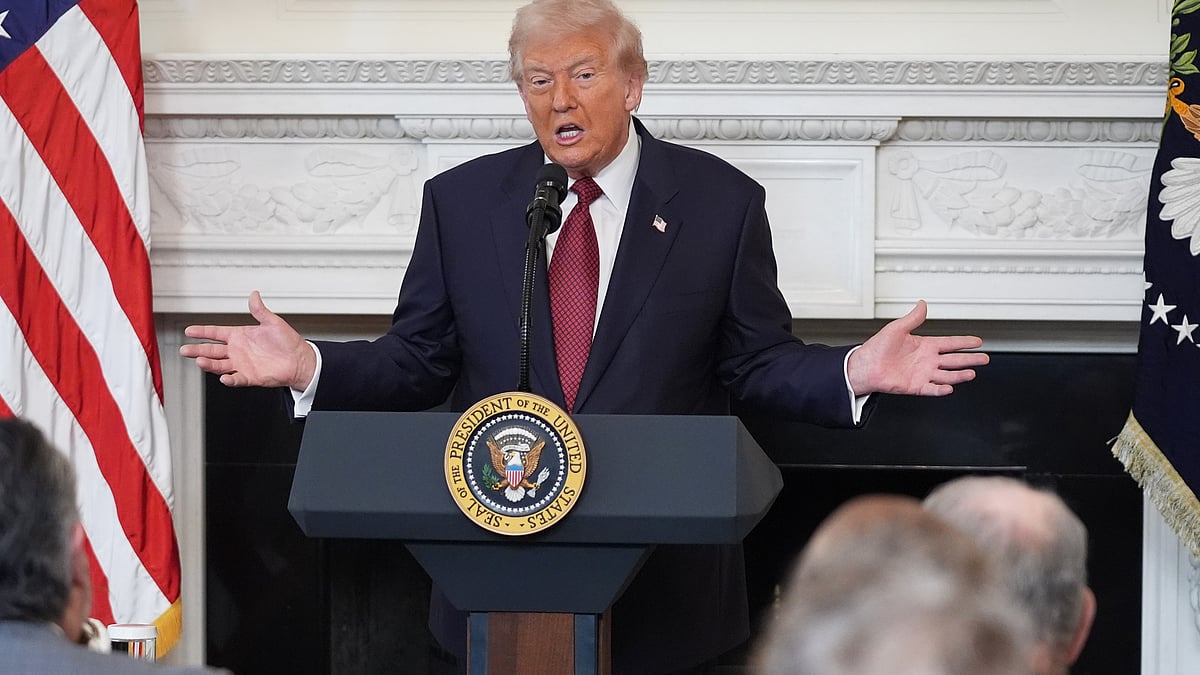POLITICS
‘58 times’: Congress takes swipe at govt after Trump repeats ‘India-Pak’ claim
Ramesh takes aim at Modi govt, highlighting the frequency with which Trump has referenced his role in halting the cross-border conflict

In a curious echo of global politics, US President Donald Trump on Wednesday, 5 November, reiterated his oft-repeated claim that India and Pakistan “made peace” in May following his threats to withhold trade deals — a statement that drew a sharp rebuke from the Congress on Thursday.
Jairam Ramesh, Congress general secretary in charge of communications, took aim at the Modi government, highlighting the frequency with which Trump has referenced his role in halting the cross-border conflict. “This makes it 58 times since 10 May that Trump has claimed credit for ending Operation Sindoor,” Ramesh noted in a post on X, sharing a video clip of Trump’s Miami address.
Ramesh questioned the narrative with a pointed rhetorical flourish: “What unites Washington DC, Riyadh, Doha, London, The Hague, Sharm-el-Sheikh, Tokyo, the US President’s Air Force One, and now Miami? All are stages where President Trump declares that his trade and tariff threats stopped Operation Sindoor.”
Published: undefined
Trump, speaking at the America Business Forum in Miami, described a dramatic scenario of escalating hostilities. “Seven planes were shot down, and the eighth was badly damaged… Two nuclear nations were at war. I told them, ‘No trade deals unless you agree to peace.’ A day later, I get a call saying, ‘We made peace.’ They stopped. Thank you. Let’s do trade.’ Isn’t that great? Tariffs did that. Without tariffs, that would have never happened,” Trump said to applause.
Since 10 May, following the four-day cross-border skirmishes triggered by India’s Operation Sindoor — itself launched in response to the 22 April Pahalgam terror attack that killed 26 civilians — Trump has repeatedly suggested he played a pivotal role in ending the hostilities. India, however, has consistently denied any third-party intervention, emphasizing that the ceasefire was the result of bilateral understanding.
Ramesh’s critique was sharp, blending humor with irony. By pointing out the extraordinary reach of Trump’s commentary — from the corridors of power in Washington to the sands of Sharm-el-Sheikh — he suggested that the Modi government seemed to accept, or at least not contest, a narrative of foreign credit for India’s strategic decisions.
In his X post, Ramesh urged reflection on the optics: “The Prime Minister’s silence, when the US president repeatedly takes credit for ending cross-border operations, raises questions about India’s narrative control and sovereignty.”
Operation Sindoor itself, launched on 7 May, targeted terror infrastructure in Pakistan and Pakistan-occupied Kashmir, marking India’s decisive retaliation against cross-border terrorism. After intense drone and missile strikes over four days, India and Pakistan reached an understanding to halt hostilities on 10 May, officially ending the confrontation.
Yet, the international limelight continues to cast shadows on the domestic discourse, as Trump, with characteristic bravado, insists on his hand in the narrative, leaving opposition leaders like Ramesh to seize the moment to highlight what they describe as the government’s passive complicity in allowing foreign narratives to define India’s strategic moves.
With PTI inputs
Published: undefined
Follow us on: Facebook, Twitter, Google News, Instagram
Join our official telegram channel (@nationalherald) and stay updated with the latest headlines
Published: undefined